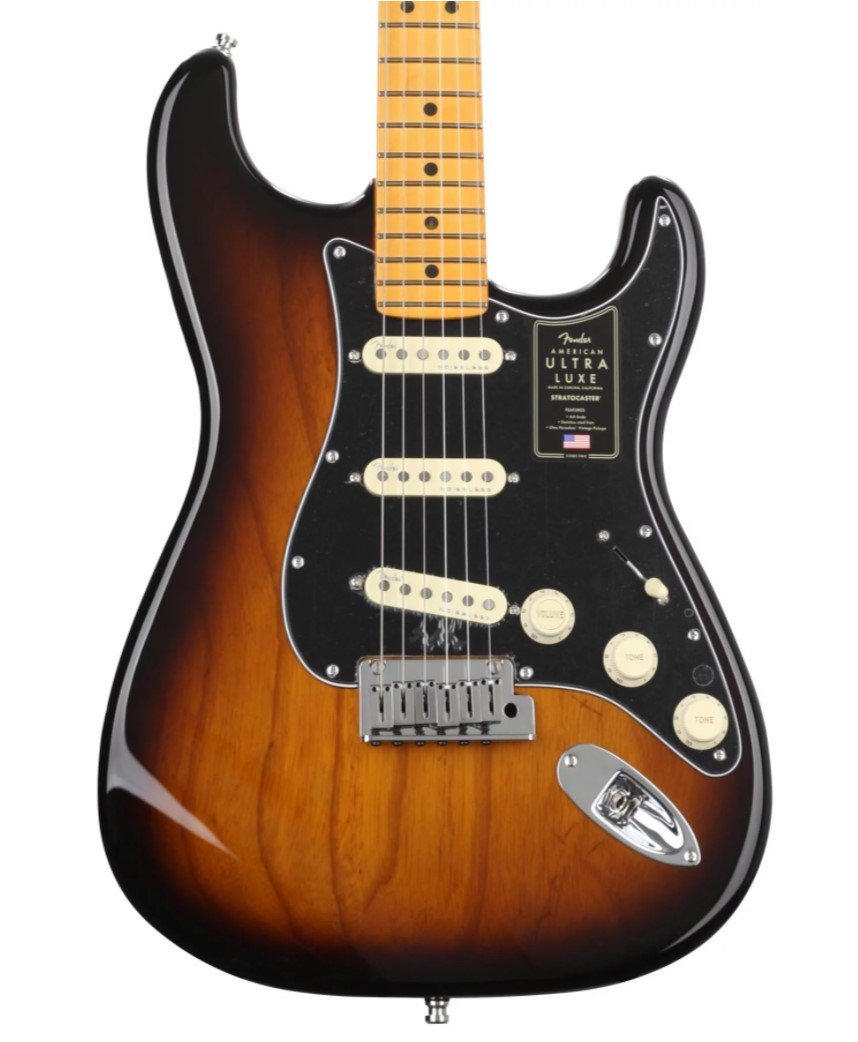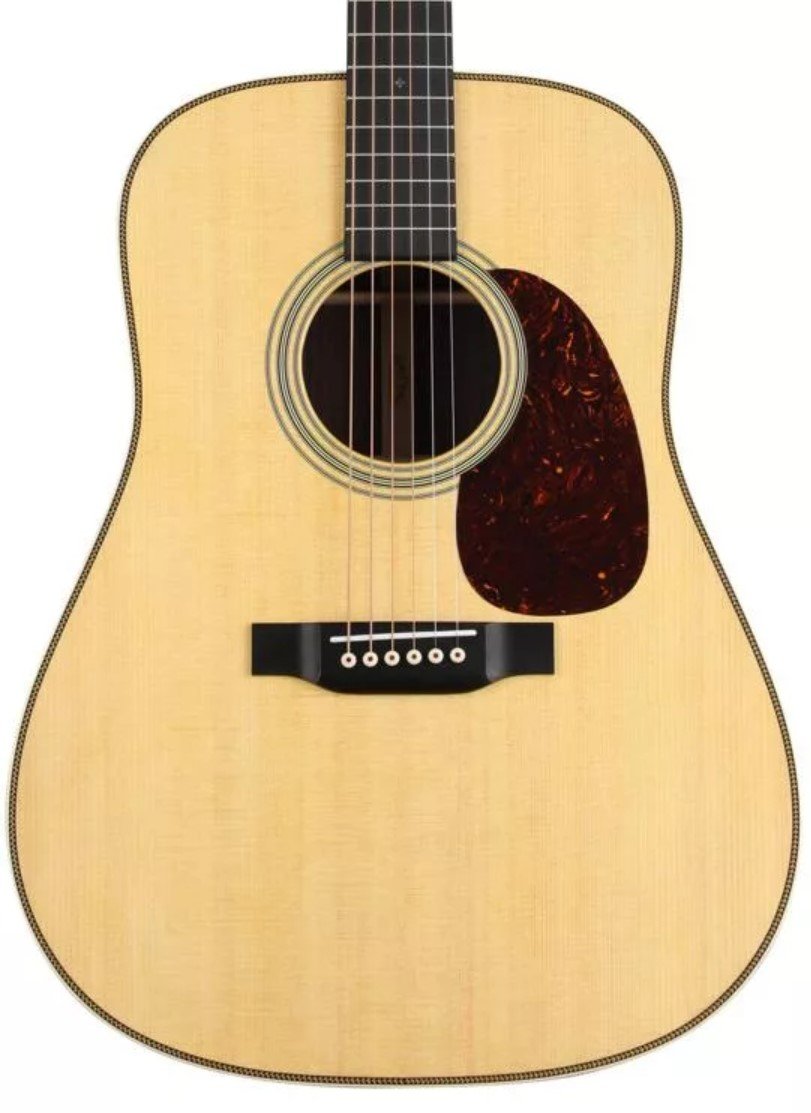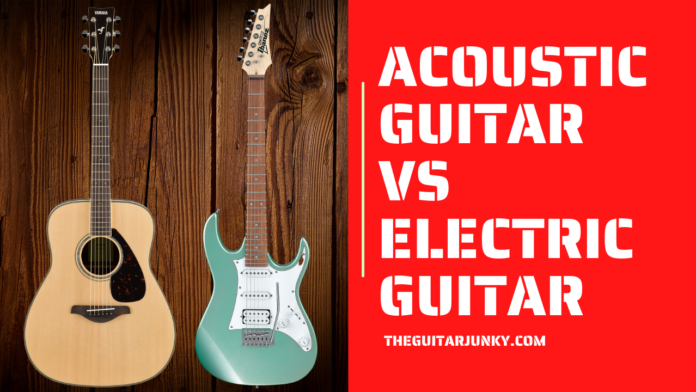So, you’ve decided to play the guitar, and that’s good. But then, you have a lot of thinking ahead of you if you’re unfamiliar with their differences and which works better for beginners.
In this article, we’re going to discuss acoustic vs electric guitar for beginners to help you make an informed decision.
Contents
Type of music
The kind of music that inspires you helps you determine which guitar would suit you better.
If pop and phrasing is your thing, you might want to pick the acoustic guitar instead.
Follow your inspiration, nevertheless. Taking an easier path as you’re just starting out in instruments may also help you determine which is right for you.
Learning curb
The electric guitar is easier to play. There is no doubt that it is easier on the fingers. However, factoring in the learning required is a different story. The electric guitar is harder to learn for beginners.

For this section, the acoustic guitar is the winner because there is more immediacy to it, as you only need a pick and your instrument. In the end, you might not also need a pick. Plus, the acoustic guitar is fuss-free and portable and allows you to play it even without an electric supply.
The acoustic guitar is also easier to learn than the electric guitar because you don’t need to be familiar with effects pedals and high volumes to master your sound. You only need to master your instrument.

You’ll also find short-scale acoustic guitars with the shorter distance between the bridge and the nut. For young fingers, it offers an advantage because it makes the guitar more manageable with the string tension reduced.
Sound
Acoustic guitars can offer you with a wider range of tones. You can also finger pick and achieve soft melodies and a great sound. These guitars don’t also require an external amp unlike an electric guitar.
The downside, you cannot add effects to it unlike with an electric guitar, which proves to be more versatile. As it uses an external amp, you can expand your sound. You’ll also find amps with a distortion channel and a clean channel, giving you more options than the acoustic guitar.
Price
It’s a major deciding factor when figuring whether it’s an acoustic or electric guitar to invest on first. If you’re someone not yet ready to shell out much on your first purchase, you might as well pick an acoustic guitar, which also doesn’t require as many accessories as an electric guitar does.
Manufacturers also now offer starter packs that can save you more money. But if you want an instrument to last longer, you might as well spend on a decent and more expensive acoustic guitar.
Feel and playability
The feel of an instrument is one of the first to consider when choosing between the two because it is one of their basic differences. The electric guitar feels easier to play than the acoustic guitar is. The strings are thinner, which is suitable for beginners.
On the market, you’ll find a lot of guitar pickups to take usually nickel or steel metal guitar string vibrations, and then be able to convert them into a voltage and sound. At that, you don’t also have to need heavier strings to achieve the sound. In an electric guitar, the string gauges are usually from .009 to .011.
The sound that acoustic guitar generates are from the vibrations of the string. The guitar’s body amplifies it naturally. Then, the guitar resonates, while the sound hole emits the tone.
The sound would be a bit weak if you’re using thinner acoustic guitar strings on the electric guitar.
The string gauges matter for playability. If you’d bring the pitch up in thicker strings, you’ll feel the tension because it is harder to bend the strings. Beginners, in this case, can experience discomfort. With practice though, it will pass, and they’ll be more familiar and feel less discomfort until it’s gone.
The electric guitar also has a thinner neck, allowing them to get their hand around it easier. It also has bigger frets that make string bending easier and allow a lighter touch.
A solid-bodied electric guitar also has an ergonomic body that is easier to get around because of less bulk.
However, it is a bit heavier than an acoustic guitar is. But then, modern guitars are now with better strides and setups, which beginners can find comfortable to play with. The string and fret distance are also with lower action, so you don’t have to wrestle a note out of the instrument.
Bottom Line
There is no right or wrong answer to the question – which is better: an acoustic or an electric guitar? It all boils down to your preference, style, budget, and goals. But of course, you can learn either instrument.
At the end of the day, the fundamentals are the same, although a few playing approaches and techniques vary. But whichever you choose, you’ll surely progress in a short span of time – with commitment and passion – to improve.
